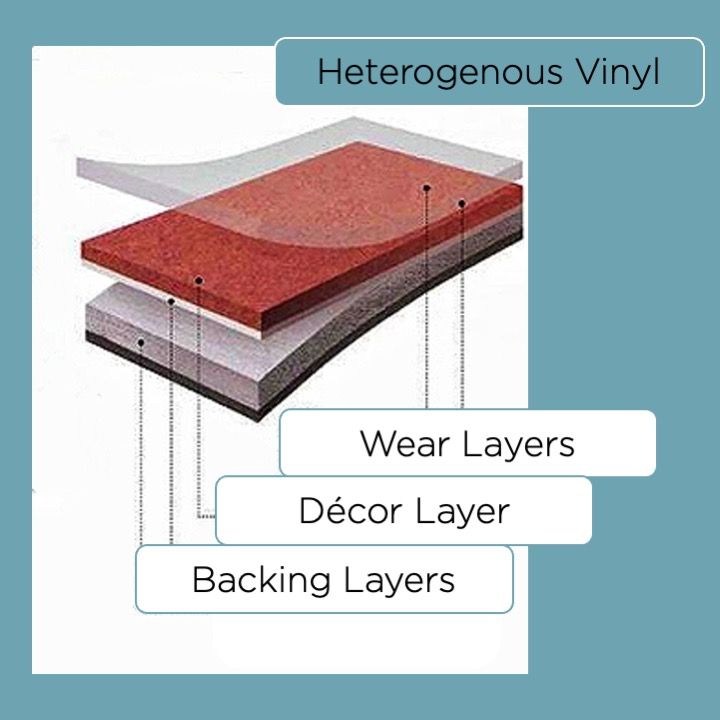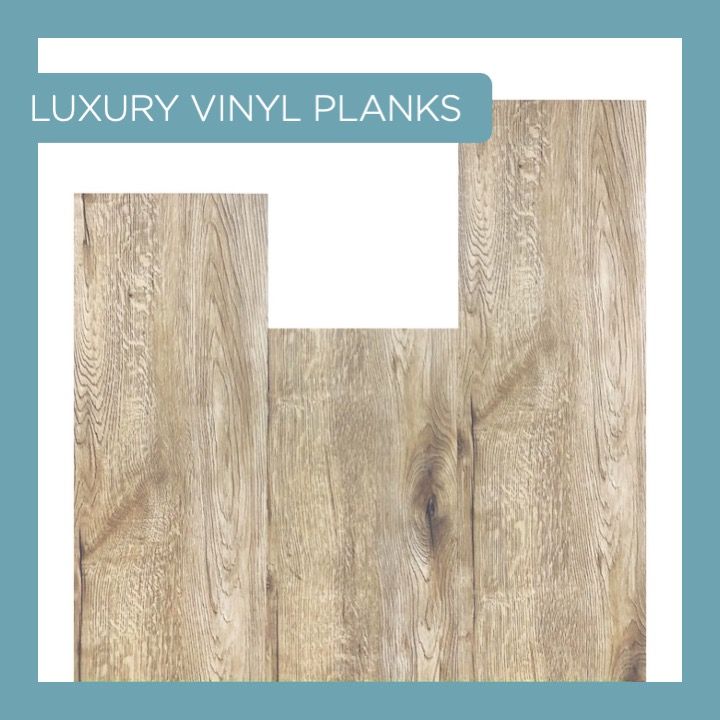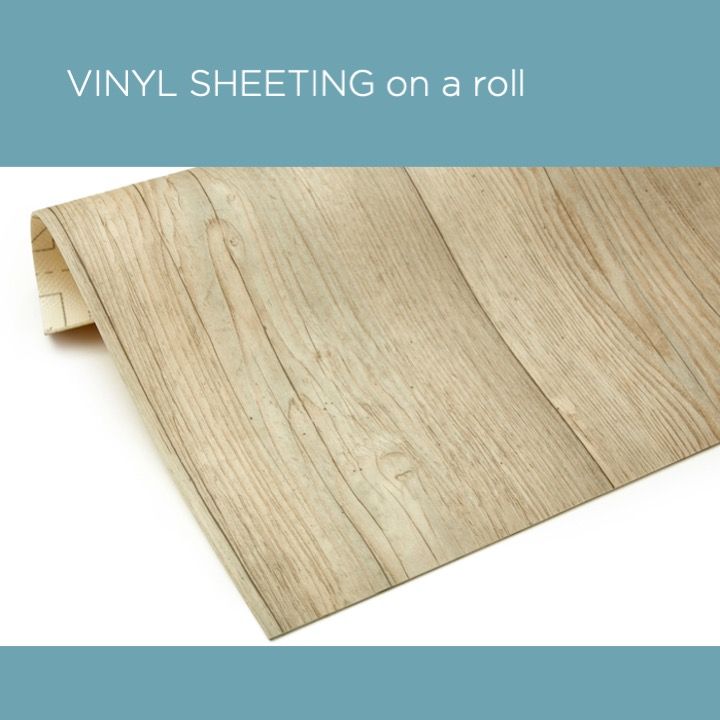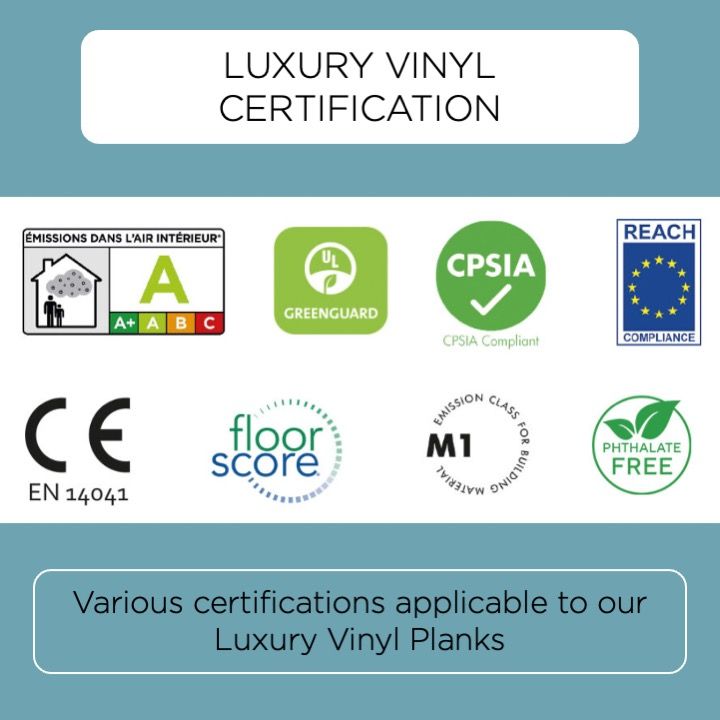All you need to know about vinyl
Vinyl flooring has come a long way in the last few years. It is a strong, cost effective material and the designs are more lifelike than ever. Below are some general points about vinyl flooring that will help you understand if this is the right product for you.
WHAT ARE THE DIFFERENT FORMS OF VINYL?
You may have seen vinyl in a hospital or classroom. That is referred to as “homogeneous vinyl” and has only one layer from top to bottom.
Vinyl that has a pattern (like wood or tiles) has many layers and is referred to as “heterogeneous vinyl.”
Those layers consist of: (from top to bottom of the product):
- A wear layer - a transparent layer which gives the product its toughness.
- Decor layers - these are the layers that give the product its look and feel
- The backing - designed to give the product stability and grip for transfer of the adhesive

WHAT IS A LUXURY VINYL PLANK
A Luxury Vinyl Plank is a specific type of vinyl designed for use in both the home and commercial environments. The product is generally available in a glue down version as well as a ‘click’ version which is installed using a tongue-and-groove type method. At Airloom we do not sell the ‘click’ version.
The glue down product varies in thickness from supplier to supplier but is generally between 2-3mm thick. The product comes in the form of a plank, which are generally around 1.2m in length and about 20cm in width (supplier dependent).
The product is glued directly to the sub floor. More details on the installation process can be found here.

WHAT IS VINYL SHEETING
Vinyl sheeting is vinyl flooring that comes in a roll of a specified width (usually 2m or 4m). The lengths of the roll vary but are generally 25m or longer.
The backing layers of vinyl sheeting are softer than a vinyl plank. In addition some products have a layer of textile on the back which provides the product with the ability to manage uneven subfloors better.
Vinyl sheeting is easier to install than vinyl plank and can be installed (DIY) by those with handy(wo)man skills.

IS VINYL HARMFUL?
Vinyl has come a long way both in design and quality, but the quality of manufacturers and their products varies tremendously. If sourced from responsible manufacturers, vinyl is not harmful to you.
Unfortunately South Africa does not have stringent regulations around these products and as a result, there are some not fantastic products in the market place and it is extremely difficult to tell the difference in quality.
As a general rule, you should understand the original source of the product; many products in South Africa are sourced from highly reputable manufacturers in Europe and the East, but some are not and are of questionable quality. Try Google the supplier or brand name to see if the product or range is available for sale in Europe.
In addition you should ask for any certification that the product may carry. If it carries a ‘CE” mark, then it is available for sale in Europe where the regulations are far more stringent and harmful materials are closely regulated; all certification should show passing a specific European test with a number such as EN434.

WHAT WARRANTIES ARE THERE ON VINYL
All vinyl should carry a ‘wear warranty.’ This warranty indicates the length of time the wear layer is warrantied against failure. In other words, the warranty is against failure of the wearlayer due to normal wear and tear. This type of warranty is the only warranty provided for on heterogenous vinyl, regardless of brand.
Installation should carry its own warranty; you should discuss this with your installer prior to accepting a quote.
WHEN VINYL IS NOT THE SOLUTION FOR YOU
Vinyl is a durable, cost effective floor type that can replicate far more expensive finishes.
Below are some examples of where vinyl installations are not recommended or may require additional elements:
- Vinyl cannot be installed Outside, open to the elements
- Too much exposure to Harsh Sunlight may cause the product to fade over time. If you have windows or doors in the home which allow high exposure to sunlight (e.g. a north-facing sliding door), we suggest you protect the floor by applying a UV protective film over the glass, or ensure blinds and curtains are in place to mitigate the harsh effects of too much direct sunlight.
- If you have a Damp Problem in the home, you cannot use a glue-down product. Rising damp will cause glues to re-emulsify (i.e. un-harden and turn to liquid), thereby causing failure of the installation. A moisture test on the existing subfloor should be conducted prior to commencement of the job, to remove any doubt about existing moisture issues.
- The areas around Fireplaces should be protected. Hot coals and embers that may fall from a fire will cause the vinyl to melt under the hot object. Areas around fireplaces should be protected by either by tiling around the fire place or using another method such as a glass protector


